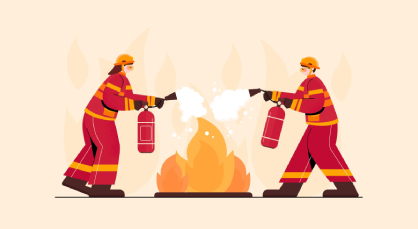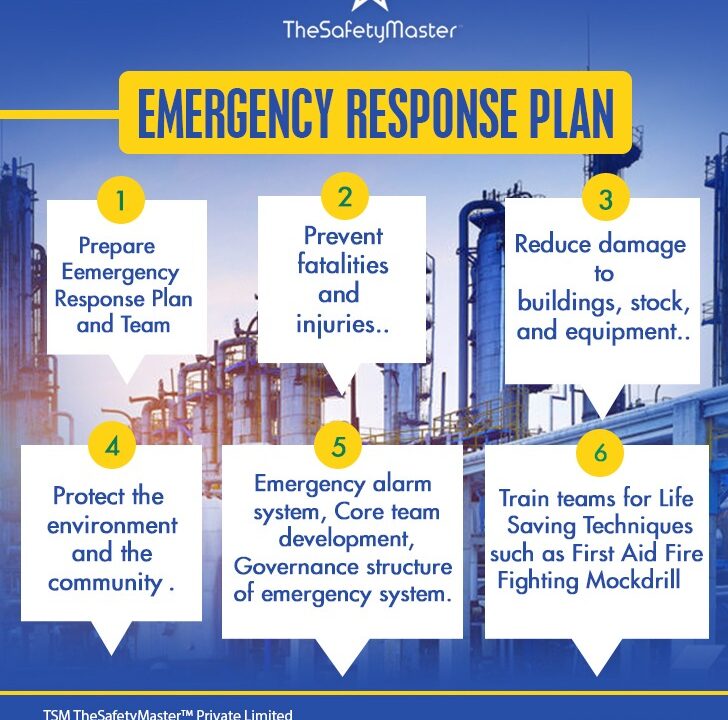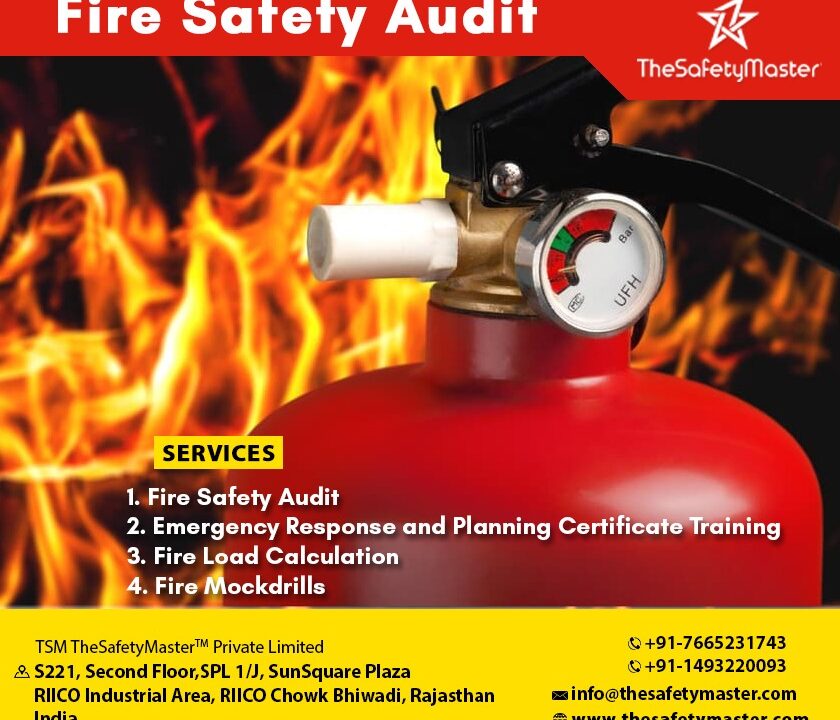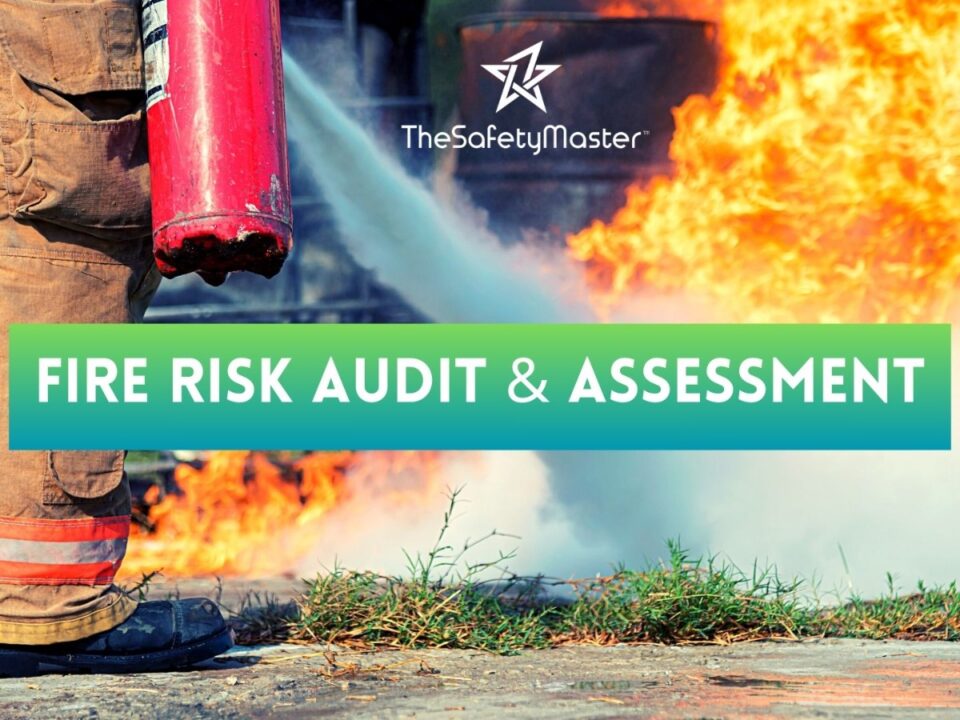Fire Audit, Behavioural Safety & Full-Spectrum Safety Consultancy: What Delhi NCR Organisations Should Prioritise in 2025

Why a Safety Audit is Non-Negotiable in Jaipur’s Industries
November 3, 2025
HAZOP, LOPA, and SIL Study Services in Thailand – Ensuring Safe Operations
November 5, 2025In 2025, workplace safety in India—especially in the rapidly industrialising Delhi NCR region—has evolved from being a compliance checkbox to a strategic imperative. As industries expand, automation scales, and workforces diversify, the need for robust safety management systems, risk assessments, and cultural safety transformation has never been greater.
From high-rise commercial towers in Gurugram to manufacturing hubs in Noida and Faridabad, organisations are realising that safety is not merely about preventing incidents—it’s about ensuring resilience, sustainability, and long-term business continuity.
This comprehensive guide explores how Fire Audits, Behavioural Safety Programs, and Full-Spectrum Safety Consultancy are redefining organisational priorities across Delhi NCR in 2025.
The Changing Safety Landscape in Delhi NCR
Over the past decade, Delhi NCR has transformed into one of India’s largest industrial and commercial ecosystems. With this rapid development comes greater exposure to occupational hazards—ranging from electrical fires and chemical leaks to behavioural lapses and process failures.
Government regulations under the Factories Act, 1948, and Occupational Safety, Health, and Working Conditions Code, 2020, are becoming stricter, and audits are being mandated more frequently. But beyond legal compliance, proactive safety management has proven to:
- Reduce downtime and productivity loss.
- Prevent costly accidents and reputational damage.
- Improve employee morale and workplace trust.
- Demonstrate corporate responsibility to stakeholders and clients.
In this evolving scenario, a holistic approach—one that integrates technical audits, human factors, and safety culture building—is crucial.
1. Why Fire Audit Should Be the First Priority
Among all workplace risks, fire remains one of the most frequent and devastating threats. Delhi NCR alone reports dozens of industrial and office fire incidents each year, often due to neglected preventive measures or outdated systems.
A thorough Fire Audit is not just a compliance activity but a lifesaving assessment. It identifies vulnerabilities in fire detection, suppression, and evacuation systems while ensuring adherence to national and international safety standards like NBC (National Building Code) and NFPA guidelines.
Key Components of a Comprehensive Fire Audit:
- Inspection of electrical panels, circuits, and wiring integrity.
- Review of fire extinguishers, hydrants, sprinklers, and alarm systems.
- Evaluation of escape routes, exit signage, and emergency lighting.
- Assessment of fire drills, evacuation plans, and staff training.
- Verification of fire NOC and local authority approvals.
A Fire Audit ensures that organisations are not only compliant but prepared. By identifying weak links early, it can prevent disasters that cost lives and millions in damages.
2. Behavioural Safety: The Human Side of Risk Prevention
While engineering controls and safety systems mitigate physical risks, human behaviour remains the biggest variable in workplace safety. Many incidents occur not due to technical failures but due to unsafe actions, complacency, or lack of awareness.
That’s where Behavioural-Based Safety (BBS) programs come in. BBS is a scientifically developed approach that focuses on identifying, analysing, and modifying unsafe behaviours through observation, feedback, and reinforcement.
How Behavioural Safety Improves Organisational Culture:
- Observation & Feedback: Employees and supervisors learn to identify unsafe acts and give constructive feedback.
- Positive Reinforcement: Safe behaviours are acknowledged and rewarded to strengthen commitment.
- Data-Driven Improvement: Patterns of behaviour are tracked to inform policy updates.
- Ownership & Accountability: Workers feel personally responsible for maintaining a safe environment.
For Delhi NCR industries with diverse workforces, BBS helps create a unified culture where every individual—from top management to contract labour—understands their role in safety. It’s not about blaming, but about transforming habits and attitudes.
3. The Role of a Safety Consultant in Building Safer Workplaces
Managing safety at an organisational scale requires both technical expertise and practical experience. That’s why partnering with a professional Safety Consultant has become essential for Delhi NCR businesses in 2025.
How a Safety Consultant Adds Value:
- Conducts detailed site assessments and risk mapping.
- Designs safety management systems tailored to industry needs.
- Trains employees and management in emergency response, PPE usage, and compliance.
- Implements behaviour-based safety and leadership programs.
- Guides organisations in achieving ISO 45001 and other safety certifications.
An expert consultant helps bridge the gap between policy and practice. For instance, The Safety Master’s multidisciplinary team brings years of field experience across sectors like manufacturing, chemical, oil & gas, and infrastructure—helping organisations move beyond compliance toward sustainable safety excellence.
4. Understanding the Importance of Safety Audits
Every organisation, regardless of size or industry, must periodically evaluate the effectiveness of its safety systems. A structured Safety Audit provides that framework.
What a Safety Audit Involves:
- Review of safety policies, procedures, and documentation.
- Inspection of physical conditions like machine guards, PPE, and housekeeping.
- Verification of training programs, permits, and incident records.
- Assessment of compliance with local, national, and international standards.
- Recommendations for corrective and preventive actions.
A well-executed Safety Audit not only identifies non-conformities but also provides actionable solutions to mitigate risks. It’s an ongoing process that strengthens an organisation’s internal safety management system and builds a culture of accountability.
5. Process Safety Management: Strengthening High-Risk Operations
For industries handling hazardous chemicals or complex manufacturing processes, the risks extend beyond daily workplace safety. Catastrophic failures can arise from process deviations, equipment malfunctions, or human error.
Process Safety Management (PSM) focuses on preventing such large-scale incidents by managing the integrity of operating systems and processes.
Core Elements of an Effective PSM Program:
- Process hazard analysis and control implementation.
- Proper documentation of operational procedures and emergency plans.
- Regular maintenance, testing, and inspection of equipment.
- Training workers in hazard awareness and control measures.
- Incident investigation and lessons learned framework.
Implementing PSM isn’t just a regulatory requirement—it’s a moral and financial safeguard. In Delhi NCR’s expanding chemical, pharmaceutical, and food manufacturing sectors, PSM has become a non-negotiable pillar of operational excellence.
6. Hazop Study: A Critical Tool for Risk Identification
A Hazop Study (Hazard and Operability Study) is another key element of modern industrial safety. It’s a structured and systematic technique used to identify potential hazards and operational issues during the design or modification of complex systems.
Benefits of Conducting a Hazop Study:
- Detects design flaws and process deviations before commissioning.
- Enhances safety and reliability of plant operations.
- Reduces the likelihood of costly shutdowns or accidents.
- Ensures compliance with international safety standards.
For Delhi NCR industries planning expansion or plant modification in 2025, a Hazop Study provides early-stage risk visibility—helping design safer and more efficient systems from the ground up.
7. The Rise of Full-Spectrum Safety Consultancy
The concept of Full-Spectrum Safety Consultancy integrates all the above elements—technical audits, behavioural programs, and management systems—into a single, cohesive safety strategy.
In 2025, forward-thinking organisations are no longer looking for one-time safety checks. Instead, they seek end-to-end partnerships that cover:
- Risk assessments and hazard identification.
- Training and skill development.
- Behavioural safety interventions.
- Emergency response planning.
- Ongoing compliance and certification support.
This holistic approach ensures that safety becomes embedded in every operational layer—from design and construction to production and maintenance.
8. Why Delhi NCR Businesses Must Act Now
1. Regulatory Pressure is Rising:
Authorities are increasingly strict with safety violations. Regular audits and certifications are essential to avoid penalties and shutdowns.
2. Complex Work Environments:
Automation and multi-contractor setups increase the need for structured safety systems.
3. ESG and Client Requirements:
Large clients now demand evidence of safety excellence and sustainability as part of vendor qualifications.
4. Talent Retention and Employer Branding:
Safe workplaces attract and retain skilled employees. A strong safety culture enhances reputation and trust.
5. Financial and Operational Stability:
Accidents lead to direct and indirect losses—from compensation costs to production halts and insurance hikes.
By investing in professional consultancy, audits, and training, Delhi NCR organisations can not only prevent incidents but also build operational resilience and business continuity.
9. The Safety Master: Leading the Way in Industrial Safety Excellence
The Safety Master has emerged as one of India’s most trusted partners in occupational safety, offering tailored solutions across industries. Its expertise spans Fire Audits, Process Safety Management, Behavioural Safety, and Hazop Studies—making it a true one-stop solution for organisations aiming for zero harm.
With a team of qualified engineers, safety professionals, and industry veterans, The Safety Master helps businesses:
- Design and implement world-class safety systems.
- Comply with Indian and international standards.
- Cultivate a proactive safety culture across all levels.
- Prepare for emergency scenarios with confidence and precision.
Their approach is built on experience, expertise, authoritativeness, and trustworthiness—values that align perfectly with the E-E-A-T framework.
10. Steps for Organisations to Strengthen Safety in 2025
If your organisation is operating in Delhi NCR, here’s how to align with 2025’s safety priorities:
- Start with a Comprehensive Fire and Safety Audit to identify current vulnerabilities.
- Conduct a Behavioural Safety Assessment to understand human risk factors.
- Partner with an Expert Safety Consultant for long-term strategic planning.
- Implement a Process Safety Management Program for critical operations.
- Carry Out a Hazop Study before plant expansions or design changes.
- Regularly Train and Re-train Staff on emergency response and safe practices.
- Review and Update Safety Policies every year to align with evolving standards.
Safety is not a one-time effort—it’s an ongoing journey of improvement and vigilance.
Conclusion: Building a Safer Tomorrow for Delhi NCR
In 2025, the focus for Delhi NCR organisations must shift from reactive compliance to proactive prevention. By integrating Fire Audits, Behavioural Safety, Process Safety Management, and holistic Safety Consultancy, businesses can safeguard their people, assets, and reputation.
Safety is more than an obligation—it’s an investment in trust, performance, and sustainability. And with expert partners like The Safety Master, every organisation can move confidently toward a future defined by zero incidents and maximum productivity.




